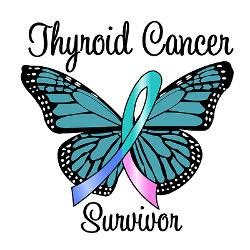It was not a judgement call when a Walgreens Pharmacist refused to refill a medication two months ago that I had filled (at Walgreens) 30 days prior. And 30 days before that....etc. It was nothing new on my profile of medications.
I wrote Farewell to Walgreens about this experience, and received comments and emails from all over the states, which all mirrored my experience with Walgreens Good Faith Dispensing Policy.
While researching this, I discovered a plethora of information that finally explained why this is happening to so many compliant, legitimate patients.
In 2011, Walgreens stores and distribution centers in Florida ordered more than 2.2 million dosage units of Oxycodone/Oxycontin. That same year, the average pharmacy in the U.S. ordered approximately 73,000 oxycodone dosage units. The DEA investigated, and fined Walgreens $80 million. The largest ever for a violation of the Controlled Substances Act.
I came across Dr. Jeffrey Fudin's blog, PainDr, and was delighted to find a post by a guest author, Dr. Ernest Dole, a Clinical Pharmacist and Professor. Titled, 'Is Walgreens Opiate Policy Deceptive?', Dr. Dole looks into the 'Good Faith Dispensing Policy' or GFD in relation to the State Board of Pharmacy and the oath of the Pharmacist. Are they beginning to 'prescribe by omission?' was a question posed by Dr. Dole, and this caught my eye, as my prescription had been axed by a pharmacist-- standing in the role of a doctor.
I relayed my experience with Walgreens on Dr. Fudin's blog, and was pleased to see him, and Dr. Dole show up with a response.
Dr. Dole's post brought in multiple comments full of the same stories of legitimate, well-established patients, being refused medication fills/refills by Walgreens. What the cameras don't see, are the faces of patients in pain, that rely on certain medications to function. Walk. Stand up. No one sees or wants to really know about the bleak horror of opiate withdrawal. Unplanned and sudden, the cessation hurts the body and the mind. This is not correct patient care. This is an interruption of a physicians plan that may have taken months- even years of work. Trial and error. Doctor and patient together, working with the physical and the pharmaceutical; successful pain management does not happen overnight. Is a corporation now telling me (and in turn, my physician) that we are unable to complete the plan for my chronic pain management?
All medical professionals take an oath. Usually beginning with, .....First, do no harm......
And it's up to the patient once again, to protect and heal themselves. It is in a patients best interest to ask for written evidence of any claim by a pharmacy that they can not fill a legitimate prescription due to a 'DEA rule/law'. This is vague and unprofessional. Whoever says this to you without anything to support this statement, is lying and making a fool out of the patient. As a nurse I would never consider lying to a patient to save face. My own or a company I work for. I realize here that many innocent employees of Walgreens Pharmacy may be caught in the middle of this huge corporate debacle, not realizing themselves what exactly they are supposed to tell patients, or what their revised 'Good Faith Dispensing Policy' even means.
Some of the patient's stories I read were heartbreaking. A woman who was a long-time, faithful Walgreens Pharmacy customer was suddenly refused her regular monthly medication, and she could not find another pharmacy to fill her medications at, the small town she lives in has no other options. One must also consider various disabilities, financial stressors, and other factors that accompany the body in disease or pain. Suddenly, abruptly left without any pain medication, her pain increased to levels that were intolerable, and she began to experience unpleasant (and unnecessary) withdrawal symptoms. She was sent to the ER by her pain management physician. The ER doctor (and her pain physician) in an effort to bring her constant high pain levels down and allow her to become somewhat mobile again; treated and released her with a prescription for a different opiate.
And then she had to fill it.
~~~~~~~~~~~~~~
California Medical Association talks about Walgreens pharmacists refusal to fill.
Do you need help with a pharmacists refusal to fill your legitimate prescription?
In California: If you or your patients have difficulties filling prescriptions for controlled substances at any pharmacy in California, please report problems to CMA's Center for Legal Affairs at legalinfo@cmanet.org or (800) 786-4262. (From the California Medical Association)
In Other States: Contact your State Board of Pharmacy.
Gentle Hugs....
**Thanks to my friend C -an amazing PharmD- for the exchange of ideas.
Subscribe to:
Posts (Atom)

